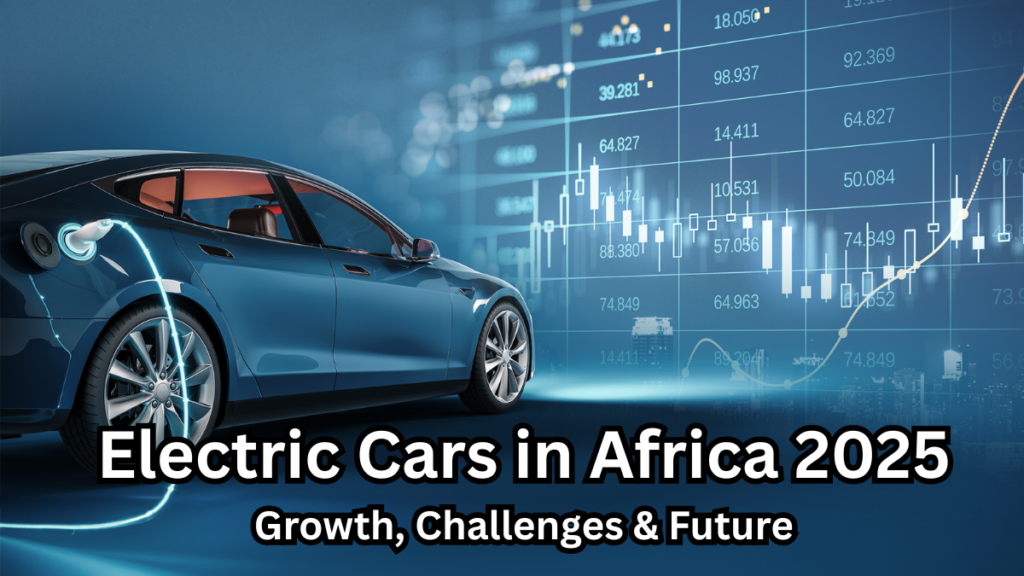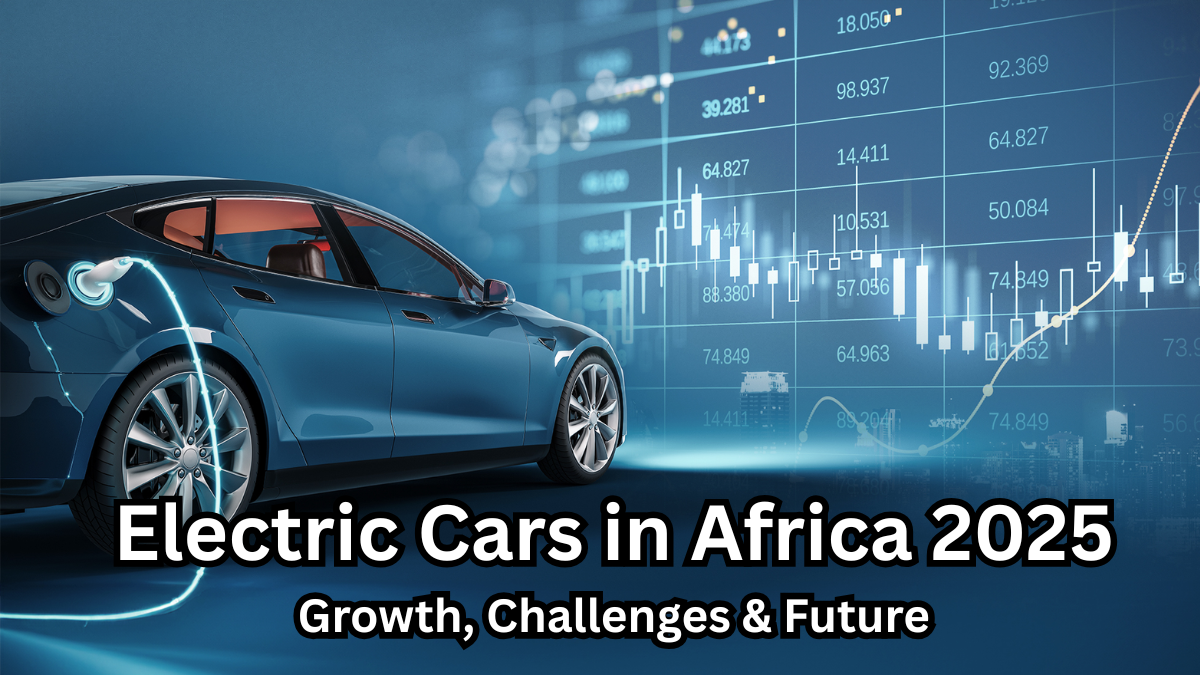Electric mobility is gaining momentum across the globe, and Africa is slowly but steadily joining the movement. In 2025, the sight of electric cars in Africa is becoming increasingly common, especially in major cities where sustainability is taking center stage. Despite a few bumps in the road, the continent is carving its path toward a cleaner, smarter transportation future through green transport.

Growing Momentum: EV Adoption in Africa
Several trends are fueling the rise of electric cars in Africa:
-
Urbanization and the need to curb air pollution
-
Skyrocketing fuel prices
-
Expanding renewable energy infrastructure
-
Government interest in clean technology
-
The rise of a tech-savvy, eco-conscious youth population
The result? A slow but promising shift to EVs, especially in East and Southern Africa.
Key Countries Leading the Charge
Some countries are moving faster than others in this journey toward electric mobility.
Country-Wise Overview
| Country | EV Strategy & Developments |
|---|---|
| South Africa | National EV policy and pilot projects in public transport |
| Kenya | EV tax incentives, solar charging stations in cities |
| Rwanda | Local startups producing e-bikes and two-wheelers |
| Nigeria | Interest in local EV assembly plants and battery innovation |
| Egypt | State-backed EV production and collaborations with foreign automakers |
These countries are also taking strides in building EV charging stations, especially in urban hubs.
Major Challenges Slowing Down EV Growth
While progress is evident, a few key obstacles are holding back the full-scale adoption of green transport across Africa.
Limited Charging Infrastructure
-
Many areas lack public EV charging points
-
Rural and inter-city coverage remains poor
Power Supply Issues
-
Unreliable electricity supply makes charging difficult
-
Blackouts are common in several regions
High Import Duties
-
Most EVs are imported at high costs
-
Limited availability of affordable, locally assembled options
Lack of Consumer Awareness
-
Misunderstanding of EV benefits and charging logistics
-
Limited exposure to electric cars outside major cities
Bright Spots: Innovation and Green Solutions
Despite the hurdles, there are inspiring examples of local innovation that are shaping the future of electric cars in Africa.
Homegrown EVs and Startups
-
Startups in Rwanda, Kenya, and Ghana are building affordable e-mobility solutions
-
Electric motorcycles and tuk-tuks are gaining popularity in urban areas
Renewable EV Charging Options
-
Solar-powered EV charging stations are being introduced
-
These help bypass grid dependency and reduce long-term costs
Education and Training
-
Technical universities are launching EV-focused courses
-
New jobs in maintenance, battery recycling, and manufacturing are emerging
The Road Ahead: What’s Next?
Looking toward the future, Africa is expected to make steady progress in EV adoption, particularly with support from the government and private sectors.
Key Predictions for 2025 and Beyond
-
Greater investment in charging networks
-
EV incentives for both private buyers and fleet operators
-
Electrification of public transport in more cities
-
Regional partnerships for EV standards and production
With the right approach, electric cars in Africa could become mainstream by the end of the decade.
FAQs
Q1. Are electric cars affordable in Africa right now?
Currently, EVs remain expensive due to import costs. However, as local assembly and second-hand EV markets grow, affordability is expected to improve.
Q2. Where can I charge my electric car in Africa?
Charging stations are available in cities like Nairobi, Cape Town, Kigali, and Lagos. Expansion efforts are underway to build more EV charging infrastructure.
Q3. How are African countries supporting green transport?
Governments are cutting import taxes, encouraging local manufacturing, and backing solar-powered green transport initiatives to boost EV adoption.
Q4. What’s the biggest hurdle for electric cars in Africa?
Limited charging infrastructure and unstable electricity supply remain the biggest challenges to the widespread use of electric cars in Africa.
Click here to learn more
Sachin is a dedicated writer specializing in education, career, and recruitment topics, delivering clear and actionable insights to empower readers.
